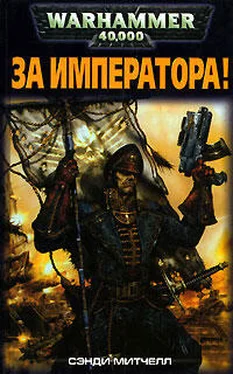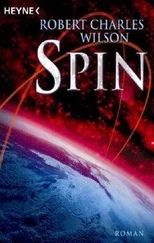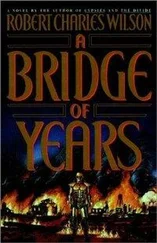The European Union had cried foul and the U.N. was convening an investigatory panel, but in a world with brushfire wars burning on four continents Lomax's argument carried considerable weight. (Even though, as Wun might have countered, the Martians had successfully lived with the same technology for hundreds of years—and the Martians were no more or less human than their terrestrial ancestors.)
For all these reasons, the late-summer launch date at Canaveral drew minimal crowds and almost desultory media attention. Wun Ngo Wen was dead, after all, and the news services had exhausted themselves covering his murder. Now the four heavy Delta rockets set in their offshore gantries looked like little more than a footnote to the memorial service, or worse, a rerun: the seed launches retooled for an age of diminished expectations.
But even if it was a sideshow, it was still a show. Lomax flew in for the occasion. E. D. Lawton had accepted a courtesy invitation and by this time was willing to pledge good behavior. And so, on the morning of the appointed day, I rode with Jason to the V.I.P. bleachers at the eastern shore of Cape Canaveral.
We faced seaward. The old offshore gantries, still functional but gone a little ruddy with saltwater rust, had been built to hold the heaviest lifters of the seed-launch era. The brand-new Deltas were dwarfed by them. Not that we could see much detail from this distance, only four white pillars out at the misty limits of the summer ocean, plus the fretwork of other unused launch platforms, the rail connectors, the tenders and support vessels anchored at a safe perimeter. It was a clear, hot summer morning. The wind was gusty—not strong enough to scrub the launch but more than enough to snap the flag crisply and tousle the coifed hair of President Lomax as he climbed the podium to address the assembled dignitaries and press.
He delivered a speech, mercifully brief. He cited the legacy of Wun Ngo Wen and his faith that the replicator network about to be planted in the icy fringes of the solar system would soon enlighten us about the nature and purpose of the Spin. He said brave things about humanity leaving its mark on the cosmos. ("He means the galaxy," Jason whispered, "not the cosmos. And—leaving our mark? Like a dog peeing on a hydrant? Someone really ought to edit these speeches") Then Lomax quoted a poem by a nineteenth-century Russian poet named F. I. Tiutchev, who couldn't have imagined the Spin but wrote as if he had:
Gone like a vision is the external world
and Man, a homeless orphan, has to face
helpless, naked and alone,
the blackness of immeasurable space.
All life and brightness seem an ancient dream,
while in the substance of the night,
unraveled, alien, he now perceives
a fateful something that is his by right.
Then Lomax departed the stage, and after the prosaic business of backward counting, the first of the rockets rode its column of fire into the unraveling cosmos behind the sky. A fateful something. Ours by right.
While everyone else looked up, Jason closed his eyes and folded his hands in his lap.
* * * * *
We adjourned to a reception room along with the rest of the invited guests, pending a round of press interviews. (Jason was scheduled for twenty minutes with a cable news network, I was scheduled for ten. I was "the physician who attempted to save the life of Wun Ngo Wen," though all I had done was extinguish his burning shoe and pull his body out of the line of fire after he fell. A quick ABC check—airway, breathing, circulation—made it abundantly clear that I couldn't help him and that it would be wiser simply to keep my head down until help arrived. Which is what I told reporters, until they learned to stop asking.)
President Lomax came through the room shaking hands before he was hustled away once more by his handlers. Then E.D. cornered Jason and me at the buffet table.
"I guess you got what you wanted," he said, meaning the comment for Jason but looking at me. "It can't be undone now."
"In that case," Jason said, "perhaps it's not worth arguing about."
Wun and I had made a point of keeping Jase under observation in the months after his treatment. He had submitted to a battery of neurological tests including another series of clandestine MRIs. None of the tests had revealed any deficiency, and the only obvious physiological changes were the ones connected with his recovery from AMS. A clean bill of health, in other words. Cleaner than I once would have imagined possible.
But he did seem subtly different. I had asked Wun whether all Fourths underwent psychological changes. "In a certain sense," he had answered, "yes." Martian Fourths were expected to behave differently after their treatment, but there was a subtlety embedded in the word "expectation"—yes, Wun said, it was "expected" (i.e., considered likely) that a Fourth would change, but change was also "expected of him" (required of him) by his community and peers.
How had Jason changed? He moved differently, for one thing. Jase had disguised his AMS very cleverly, but there was a perceptible new freedom in his walk and his gestures. He was the Tin Man, post-oilcan. He was still occasionally moody, but his moods were less violent. He swore less often—that is, he was less likely to stumble into one of those emotional sinkholes in which the only useful adjective is "fucking." He joked more than he used to.
All these things sound good. And they were, but they were also superficial. Other changes were more troubling. He had withdrawn from the daily management of Perihelion to such a degree that his staff briefed him once a week and otherwise ignored him. He had begun reading Martian astrophysics from the raw translations, skirting security protocols if not absolutely violating them. The only event that had penetrated his newfound calm was the death of Wun, and that had left him haunted and hurt in ways I still didn't quite understand.
"You realize," E.D. said, "what we just saw was the end of Perihelion."
And in a real sense it was. Apart from interpreting whatever feedback we received from the replicators, Perihelion as a civilian space agency was finished. The downsizing had already begun in earnest. Half the support staff had been laid off. The tech people were draining away more slowly, lured by universities or big-money contractors.
"Then so be it," Jason said, displaying what was either the innate equanimity of a Fourth or a long-suppressed hostility to his father. "We've done the work we needed to do."
"You can stand here and deliver that verdict? To me?"
"I believe it's true."
"Does it matter that I spent my life building what you just tore down?"
"Does it matter?" Jason pondered this as if E.D. had asked a real question. "Ultimately, no, I don't suppose it does."
"Jesus, what happened to you? You make a mistake of this magnitude—"
"I don't think it's a mistake."
"—you ought to assume the responsibility for it."
"I think I have."
"Because if it fails, you'll be the one they'll blame."
"I understand that."
"The one they'll burn."
"If it comes to that."
"I can't protect you," E.D. said.
"You never could," Jason said.
* * * * *
I rode back to Perihelion with him. Jase was driving a German fuel-cell car these days—a niche car, since most of us still owned gas-burners designed by people who didn't believe there was a future worth worrying about. Commuters burned past us in the speed lanes, hurrying home before dark.
I told him I meant to leave Perihelion and establish a practice of my own.
Jase was silent for a little while, watching the road, warm air boiling off the pavement as if the edges of the world had softened in the heat. Then he said, "But you don't have to, Tyler. Perihelion ought to struggle along for a few years yet, and I have enough clout to keep you on payroll. I can hire you privately, if need be."
Читать дальше












